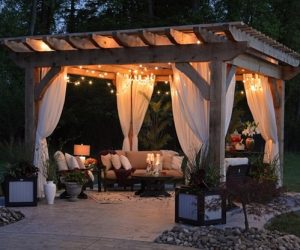Buying a new house is a significant milestone in one’s life, and it’s an investment that requires careful consideration. Whether you’re a first-time buyer or looking to upgrade to a larger space, there are several crucial factors you should weigh before making a decision. From location and budget to the condition of the property, these elements can significantly impact your overall satisfaction and long-term happiness with your new home. In this article, we will delve into the top things you should consider before you buy a new house, guiding you through the process and helping you make an informed choice that suits your lifestyle and needs.
Location Matters
The first and foremost aspect to consider when buying a new house is its location. Think about your daily commute, accessibility to essential amenities, and the neighborhood’s overall ambiance. Proximity to schools, hospitals, shopping centers, and recreational areas can greatly enhance your quality of life. Additionally, research the neighborhood’s safety, local infrastructure, and future development plans. A well-connected and thriving community not only ensures convenience but also appreciates property value over time. Take the time to explore the area, talk to neighbors, and envision yourself living there to gauge if the location aligns with your lifestyle and preferences.
Set a Realistic Budget
Determining your budget is a crucial step in the home-buying process. Assess your financial situation, including your income, expenses, and existing debts. Factor in additional costs such as property taxes, maintenance, and homeowners association fees. It’s essential to set a realistic budget that allows you to comfortably cover your mortgage payments without compromising your overall financial stability. Consider getting pre-approved for a mortgage, as it provides a clear understanding of your purchasing power and can streamline the buying process. Avoid stretching your finances too thin, as unexpected expenses can arise. A well-planned budget ensures that you can enjoy your new home without the constant stress of financial strain.
Assess the Property’s Condition
Before finalizing your decision, thoroughly assess the condition of the property. Hire a reputable home inspector to conduct a detailed inspection, checking for structural issues, plumbing, electrical systems, and potential repairs. Inspections can reveal hidden problems that might not be apparent during a casual walkthrough. Pay attention to the age of the roof, appliances, and HVAC systems, as these components can incur significant replacement costs if they are nearing the end of their lifespan. Additionally, consider the property’s resale value by evaluating its features and potential for future improvements. A well-maintained and structurally sound house not only provides peace of mind but also ensures that your investment remains valuable in the long run.
Looking for Tiny House on Wheels for Sale
In today’s diverse real estate market, prospective buyers are not limited to traditional houses alone. If you’re seeking a more unconventional and minimalist lifestyle, you might find yourself looking for a tiny house on wheels for sale, that will give you a unique living experience with mobility. These compact dwellings allow you to change your scenery whenever you desire. While the principles of location, budget, and property condition still apply, the key difference is in the size and the freedom to explore different environments. Just like with a traditional home purchase, consider the location and features of your tiny house on wheels carefully. Ensure it meets your needs, aligns with your budget, and is in good condition. Whether you’re looking for a spacious family home or a cozy retreat, these considerations are paramount in finding the perfect tiny house on wheels to suit your lifestyle. Ultimately, the decision between a traditional house and a tiny house on wheels boils down to your personal preferences and the life you envision living.
Consider Future Resale Value
Thinking about the future resale value of your potential home is a prudent move, even if you don’t plan to sell anytime soon. Real estate markets fluctuate, and certain features or locations may appeal differently to future buyers. Invest in a property that has the potential to appreciate over time, making it a valuable asset should you decide to sell in the future. Research the neighborhood’s historical price trends and growth potential. However, if you’re looking for a quick and hassle-free sale of your current home, services that advertise we buy houses as is can be a great option to consider. These services allow you to sell your home in its current condition, avoiding the stress of costly repairs or renovations. Additionally, focus on properties with timeless designs and versatile layouts, as these tend to attract a broader range of buyers, enhancing your chances of a profitable resale.
Evaluate the Neighborhood’s Lifestyle
Beyond the physical aspects of the property, consider the lifestyle the neighborhood offers. Assess the local community’s vibe, cultural events, dining options, and recreational activities. Engage with the community and get a sense of the social atmosphere, as a vibrant neighborhood can significantly enhance your overall living experience. Look for areas with parks, fitness centers, and entertainment venues, fostering a sense of belonging and encouraging a healthy lifestyle. A neighborhood that aligns with your interests and values ensures that your new home becomes a hub of not just comfort but also meaningful connections and experiences.

Factor in Long-Term Sustainability
As environmental consciousness grows, considering the long-term sustainability of your new home has become increasingly important. Evaluate the property’s energy efficiency, water conservation features, and overall eco-friendliness. Look for homes with energy-efficient appliances, well-insulated windows, and sustainable building materials. Additionally, assess the availability of renewable energy sources like solar panels, which can not only reduce your environmental footprint but also lower your utility bills in the long run. Embracing sustainable practices not only benefits the environment but also contributes to a healthier, cost-effective, and socially responsible lifestyle, ensuring your new house remains a wise investment for years to come.
Incorporating these considerations into your home-buying process can provide a more holistic perspective, guiding you toward a choice that aligns with your present needs and future aspirations. By evaluating the future resale value, the neighborhood’s lifestyle offerings, and the long-term sustainability of the property, you can make a well-rounded decision that not only meets your immediate requirements but also ensures lasting satisfaction and value in your new home.



